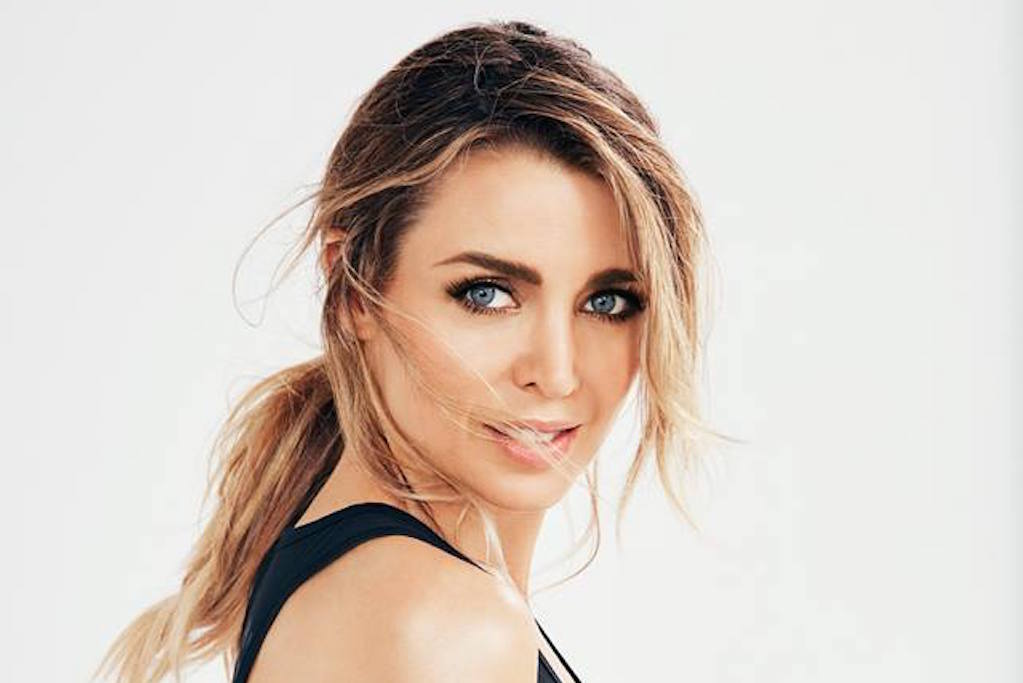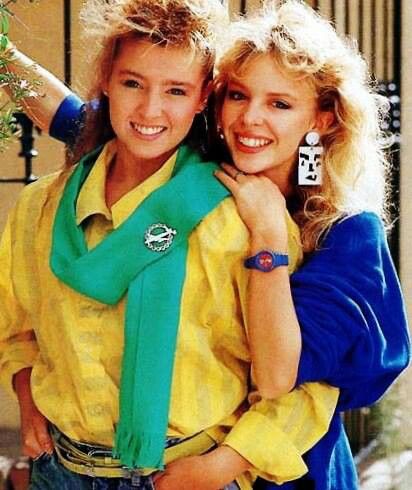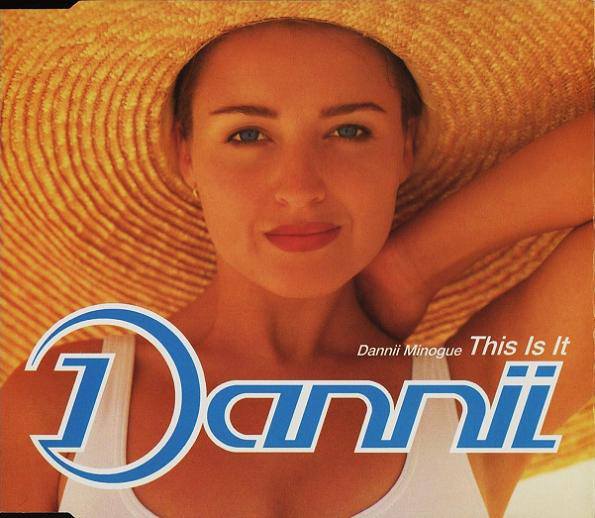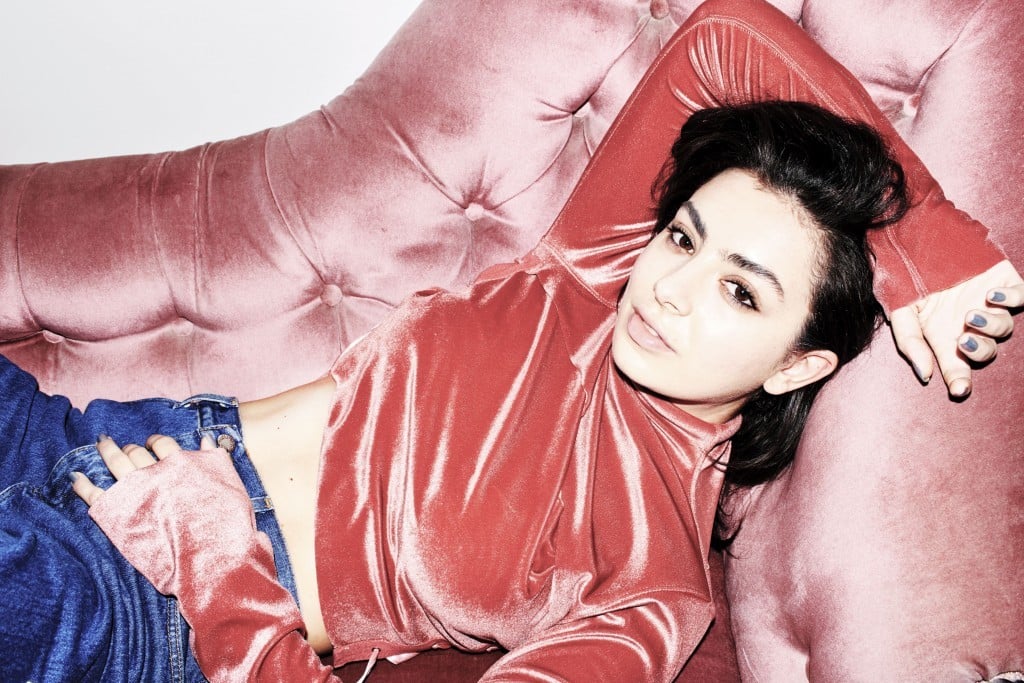We Interviewed Dannii Minogue In 2017 And Yep, She’s A Total Legend
Adopt us, please?

Australian music dynasties don’t come much bigger than the Minogues. Since they began their recording careers in the ’80s, sisters Dannii and Kylie have defined and consistently re-invented pop music, both in Australia and beyond.
Between them, they’ve racked up dozens of number one hits and released chart-topping albums, appeared on countless TV soaps and become judges or mentors on a string of different reality shows. They’re probably the closest thing to royalty this country has.
But any nerves I had about calling Dannii for a chat vanish as soon as the younger Minogue picks up the phone — she’s as kind and thoughtful an interview subject you could hope for. We’re talking to promote the Australian tour of Manchester legends Take That, which she’ll serve as support act for in November.
Minogue is forthcoming and candid about everything from ingrained industry sexism to Australian politics — and also strongly re-asserted her support for marriage equality, an issue which had erupted across the media on the morning we spoke.
You’ve been in the industry for 40 years. What’s been the biggest change that you’ve seen in that time?
I grew up in live TV. Every Saturday night you’re on, and everyone was ready to see what you were going to do — and if you made a mistake, you made a mistake. That’s how you got your chops. If you made a mistake you would have to just handle it. You spend a week rehearsing for that one chance at doing it.
So I’m addicted to that adrenaline, whether that’s live radio, or performance, or live TV, that’s where I really start to light up. It’s funny, along the way I would meet people in different jobs and they would say to me, “Okay, this is live everybody. It’s live.” And I’m like, “Well yeah, to me it always was and always has been and hopefully always will be.”
I guess a lot of performers today are more in their comfort zone with pre-recording and editing. That freaks me out.

Young Talent Time was where you got your start, alongside a lot of other revered Aussie acts. What’s your most precious memory of the show?
I think my most previous memory is when my sister came on to sing a song with me, and we did a cover of ‘Sisters Are Doing It For Themselves.’ We had ridiculous hair, and we put on these sequinned dresses. We just love it. It’s a favourite memory, and whenever we perform together now, we always say, “Oh, remember that time?”
Speaking of reality TV, you’ve worked on a lot of talent shows over the years. What’s it like being behind the scenes of one of those big productions?
The thing that I’ve loved about those jobs is mentoring the talent. I got to do some work on Britain’s Next Top Model recently, and just working with the younger girls and getting their confidence together was so rewarding. It’s the same with X Factor.
When you keep working with the contestants and you’re telling them the same stuff and then suddenly one day the penny drops and you see them get it, that’s amazing. That’s a skill they’ll have that they’ll keep for the rest of their life.
Do you have much interaction with contestants outside of what we see on screen?
There are some people who have been in my teams that I stay in contact with. They’ve all got my number, they hit me up. They’re like, “Oh I’ve got a something out, can you help me promote this?” They know that I’m always there for them, because they’ve become my little chickens, you know, my little babies. I look after them.
You were talking about enabling young women’s confidence in their work. You’ve been in the entertainment industry for such a long time — do you think it’s gotten easier or harder for women to carve a career path?
There are things that have changed along the way, but it’s still hard. There’ve been incredible things that I’ve been able to do — like judging Australia’s Got Talent while I was pregnant.
I spoke to them and said “I can do the show but I can’t be there for the auditions, I’ll be joining the job from halfway through.” And they allowed me to do that. I had never seen pregnant women on TV before. I didn’t really have anything to relate it to, so that was incredible.
So movement has happened, things have changed. I think any women of an older generation will say “Yeah, we couldn’t have done that back in the day.”
But it’s still incredibly hard, and it comes down to having more women in the management control zone that can support other women. And also women having the confidence in asking and putting themselves forward for those jobs, to get in there and say, “I’m here.”

Do you think labels are last bastions of the boys club?
I don’t know if they’re the last. But I think the fact music has become digitised has really opened up a whole new world.
Robyn has been one of my favourite artists in that respect. With a record company at her back, she said she wanted to go out and do it on her own. She said, “This is the music I want to go and do”, and she did it. And it’s getting easier and easier every day. If you do want to do that, just go out and do it.
I’ve just sorted my business side now so that I can just release music digitally whenever I want to, because I want to. I’ve had a song just come out, and I’ll release other songs in November when I’m on tour. I think in that way it’s great. You can give yourself power and you hopefully dabble with the whole empire and then you can support other people.
You’re part of one of the most well-known show business families in Australian history. Was there ever a point in your career or in your life where you struggled to form your own identity and your own brand outside of that?
There was a time when I went to the UK and it was all about Fleet Street journalism, and it was amazing how many things could be made up and printed about me… and if it was what someone wanted to believe then it was very hard to change that around.
“It was amazing how many things could be made up and printed about me”
But stuff is so immediate now. You have your own tribe, your fans, your friends, and I think it’s we’re living in a different world where I can correct something at the drop of a hat and I can have a say and I can put out there what I’m doing. So I feel in that way it’s different and it’s a lot better.

Photo: Steve Shaw
Do you listen to much contemporary Aussie music these days? Are there any young artists that you really love?
I would have to say that a lot of the dance music stuff that I’m listening to is more from the UK. My favourite at the moment is Clean Bandit have been my- joyful mix of pop and dance. And I think for the guys DNCE, that’s beautiful mix of pop and dance. From Australia I would say Illy — he’s really, really cool. He’s just doing such a great job.
The thing that I love about younger performers right now is that they tend to love a lot of the sounds that came out of the ’80s and ’90s. Bands that I love in the 80s that I listened to — whether it was Bananarama or Tears for Fears — are being sampled and reused now. I love the fact that the younger kids are digging those sounds and trying to find the keyboards that make all of those sounds.
The debate around marriage equality has erupted again this week. You’ve spent quite a lot of time in the UK where it’s been legal since 2013. What’s it like coming back home and seeing this debate still happening?
I think a lot of people have been putting the brakes on. It’s still just an absolute shock to wake up in this country and think that this is the best that we can do, that this is the position we’re in. It’s just unbelievable. I would love to see people’s lives turn around, and have their freedom and their lives and their world and their relationships respected.
It’s funny, I remember Kylie performing at the Olympics and she was carried into the stadium with all these drag queens around her. I also remember [fashion designer] John Paul Gaultier coming to visit Mardi Gras years ago, and we were standing in the street watching the parade and he said: “Wow you would never see this in Paris. I can’t believe my eyes.”
At the time I was thinking, “Yeah, you know, we’re really cool here. We’re really ahead, we’re really liberated.” Then you fast forward to 2017 and we’re still fighting for basic equality. Unbelievable.
This upcoming tour the first time you’ve toured Australia with a full band, which seems amazing given you’ve had such a long career. Was this a bucket-list item for you?
Absolutely. I’ve played those venues before, but that was when I was doing a musical, so I’ve never done it with my own music. We’re throwing everything out there because I want it to sound incredible, so we’ve worked really hard on doing a blend of stuff that’s on-track instrumental and stuff that’s live.
There’s nothing like when I walk on stage and the drums and percussion smash behind me. You get that real live feeling in the room, so that’s why I’m doing it this way. I don’t know many dance music artists that do that, ‘cos it’s hard to get the blend right. I’ve got a guy who uses real drums where we need them but most of them are programmed, so we tracked down all the original sounds and he’s drumming it live into the drum machine.
Jules LeFevre is Staff Writer for Music Junkee and inthemix. She is on Twitter.
—
Dannii Minogue will joining Take That on tour in Australia this November. Head here for all dates and ticket details.
